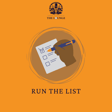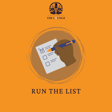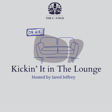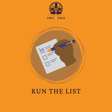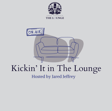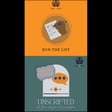Become a Creator today!Start creating today - Share your story with the world!
Start for free
00:00:00
00:00:01

Racial Battle Fatigue with Marla Moss
PsyD Candidate, Marla Moss dives deep into Racial Battle Fatigue and shares some coping strategies to mitigate stress as a medical student.
To share your thoughts on our discussions or if you have any questions email podcast@snma.org for a chance to be featured on the show!
To participate in this study visit https://www.surveymonkey.com/r/HJFLGWF
Disclaimer: The opinions and views expressed on our podcast do not reflect the official stance of the Student National Medical Association.
Transcript
Introduction of Ms. Marla Moss
00:00:19
Speaker
Hey, hello, everyone. Welcome to The Lounge podcast. We have a special episode today. This is an interview with Ms. Marla Moss. So just to introduce Ms. Marla, she is a doctoral intern currently completing the equivalent of a residency at the U.S. Department of Veteran Affairs, Tennessee Valley Healthcare System with an interest in health psychology.
Research on Racial Battle Fatigue
00:00:42
Speaker
She will obtain her degree in clinical psychology in spring 2024 from Kansas City University. Marla has a strong emphasis in health care and health disparities. Her servitude for health care extends first in her pursuit as an occupational therapist for over 13 years and now as a psychology intern. Marla recognizes how important the biopsychosocial cultural model is to the welfare of all people as she extends her efforts towards racialized stress and the impacts on health among Black Americans.
00:01:10
Speaker
So the purpose of a research is to investigate doctoral black medical students coping mechanisms in response to racism related events sustained throughout their medical school experience with a focus on the concept of racial battle fatigue. The results of this research will further the conceptualization of coping strategies used to mitigate the stress response system.
00:01:30
Speaker
So this is just kind of Marla's work in a nutshell. I know me as a medical student, this definitely hits home because, listen, racial stress, battle fatigue is a real thing. It definitely exists. And so I'm so excited to be talking to you today, Marla, just kind of about your work and what brings you here to the lounge.
Career Shift and Specialization in Health Psychology
00:01:51
Speaker
Yes, thank you so much for having me on. I appreciate it. Yes. Of course, of course. So kind of just to start off, can you kind of just first tell our listeners more about yourself and your academic journey? So just to kind of make it simple for you guys, we are going to be showing, popping up the questions on the screen as we're saying it. So this is the question here. So yes, if you can begin with just kind of letting us know a little bit more about yourself.
00:02:14
Speaker
Yeah. So I know it ultimately sounds crazy because you're like, what? She was an occupational therapist and now she's about to be in psychology. Like make that make sense. Literally what happened was, I mean, it was my intent. I was going to stay in occupational therapy. I loved occupational therapy. I loved, like you just talked about the servitude piece of healthcare in itself.
00:02:37
Speaker
But what I was finding is that as I tried to implement rehabilitation with any patient, I was running into aspects of fear, anxiety, depression, what was home life going to look like now that I've broken my hip or, you know, will I have proper, you know, caregivers when I get home? And I was like, wow, I was like, man, there's something to this, like this psychology piece, like,
00:03:00
Speaker
I need to go get some training in psychology ultimately so that I could come back and give, you know, quality health care. That was my intent. So I went, got a master's in psychology. I love psychology so much. And I mean, there's various avenues.
00:03:18
Speaker
that you can go into with psychology. And of course it just made sense to combine the two. So ultimately my specialization will be health psychology. So that's kind of how I took the journey into psychology.
00:03:31
Speaker
Right. Oh, that's that's amazing, honestly. And I think it speaks to kind of you talking about your background in occupational therapy and how you were able to combine that with your interest and love of psychology and kind of creating a niche for yourself is really amazing, specifically the health psychology niche, which because I think that that is something that's not too common.
Understanding Racial Battle Fatigue
00:03:50
Speaker
And I know for I, and like I said, our listeners, where most of us are pre-med, we're medical students, we're residents, we're all kind of in the medical field and we're pretty much experiencing what you are now doing your study on, which is the racial battle fatigue. So I'm interested in just knowing, can you define what that is for our listeners? Like, what is it? How does it manifest in the daily lives and work of Black students and scholars?
00:04:15
Speaker
Yes, so ultimately the concept really comes from Dr. William A. Smith. He's actually the chief executive administrator of Huntsman Mental Institution at the University of Utah, a phenomenal man that came up with this concept of racial battle fatigue. And really what it is is just a framework to kind of describe systematic race-related repetitive stress injuries.
00:04:45
Speaker
that we encounter throughout our day. And that stress is really derived from like cumulative effects of micro and macro level aggressions on a racialized targeted group, basically. So it originally started out as an African-American thing. And I mean, it has extended really to all persons of color, really. Right.
00:05:11
Speaker
and oh no go ahead no no sorry uh continue no um i was like oh yeah she asked me kind of how it manifests itself um ironically how it kind of manifests itself is emotionally psychologically physically um some of the aspects that you will see i mean it's not limited to but you will see isolation low self-esteem anxiety
00:05:32
Speaker
depression, constipation, digestive issues, low back pain, insomnia. But those are common things physiologically that we're like migraines is a huge one, you know, that we and you don't relate it back to what may have happened. Right. Earlier that day.
00:05:55
Speaker
Right.
Challenges and Coping Strategies for Black Medical Students
00:05:56
Speaker
Right. A hundred percent. And, you know, you kind of are touching on like all the physical manifestations that can even result from this racial battle fatigue from, you know, people who are in medicine. And I wonder kind of throughout your study so far and the data that you've collected so far, what are you seeing that are some common ways that Black medical students are experiencing racism as well as are there any particular
00:06:24
Speaker
anecdotes or stories that you can share from your data so far?
00:06:28
Speaker
Yes, I really love doing this research because I learned so much from you all as well. But some of the common things that I am seeing in the focus groups now, people are talking about being held back, having to repeat classes or even whole entire years, not being allotted proper time to kind of retake examinations after coming off of, you know, illnesses. They talk about
00:06:55
Speaker
verbal microaggressions from professors and colleagues being made to feel inferior as a whole. Another one that I found really, really interesting is the shock factor that comes from colleagues and professors that African Americans could know this much about, you know,
00:07:19
Speaker
a topic or just have that grave ability to have this type of knowledge base in the world.
00:07:27
Speaker
No, seriously. And it and I think it's something that doesn't really come to mind usually when we're thinking about like, just like to actually put a word to with the racial battle fatigue. I don't think anyone thought there was a word to describe what exactly that looks like, what that is, but we've all experienced it. And with that, has there been any particular coping mechanisms that black medical students have said that they use to kind of help deal with those anxieties and stress that they that they're feeling?
00:07:55
Speaker
Yeah, ultimately I hear a lot of spirituality as being one, really collectivistic support, so familial support, friends, spouses, people that look like you kind of bounce that information off of them and somebody actually being able to validate how you are feeling.
00:08:18
Speaker
Right. I think another just great anxiety or perceived stress outlet is physical activity, you know what I'm saying? We tell people all the time,
00:08:33
Speaker
to do, think of imagery, put yourself in a different place, deep breathing to try to combat some of that. But what I'm finding to be common is what an epidemiologist named Sherman James, he actually talks about John and Jane Henryism. And so
00:08:53
Speaker
What really that is, is just a strategy of coping with prolonged exposure to stress by exposing ourselves to high levels of effort. So I'm trying to be better. I'm trying to be better. I'm just going to keep going. I'm going to keep going. Ultimately, what that does is it kind of illuminates into a physiological cost. So we get right back into the racial battle fatigue.
00:09:16
Speaker
Right. A hundred percent. And, you know, I think that, you know, you're talking about people within medicine specifically and kind of how we're dealing with this racial battle fatigue. I wonder, like you as a doctoral student who's studying this and, you know, researching this, how would you say this research topic personally affects you? Are there any experiences or challenging situations you found yourself in that you just had to overcome? And if yes, are you kind of comfortable sharing with us what
Impact of COVID-19 and Racial Protests
00:09:44
Speaker
that is?
00:09:44
Speaker
Absolutely. So how this work actually started is because I actually endured some of the very same things. So like always being hyper vigilant about how I present myself in the classroom. I do not want to actually like solidify some of the stereotypes that you may have about African Americans because if I do,
00:10:09
Speaker
I speak for the whole population of African Americans. I've even had my own situations that are very similar to some of those that I mentioned, like being very surprised on how I present myself as far as knowledge base is concerned.
00:10:26
Speaker
I've even had some cultural nuances that have actually held me back. So I've been held back a year in my program in itself, just for, like I said, those cultural nuances that maybe my STEM professors didn't understand. So it holds near and dear to my heart, too. It's almost like a Me Too movement as I meet the people in the focus groups.
00:10:49
Speaker
Right. Yeah, 100%. And I think that like it seems like there was inspiration that you took from your own personal, you know, battles, you know, being in this academic, academic world because everyone knows that academia comes with a lot of stresses and challenges and even I as a medical student.
00:11:05
Speaker
I do experience that. So I think it's good that you kind of took that and you made that into something tangible that we can say, hey, like this is what's going on. This is how we can combat it. Yeah, I think that's very meaningful. And I also want to kind of just know
00:11:20
Speaker
If we're tying it into something that has happened within actual day to day life like being a very prominent event where we had to kind where we kind of had to use these tools that you're talking about to battle it and
00:11:36
Speaker
get through it would be COVID-19 that was like very much like a prominent situation that happened. A lot of those things I think boiled even higher like they really came to the surface because of COVID and now something like racial battle fatigue during that time I think was very exacerbated maybe compared to where
00:11:55
Speaker
we're kind of getting out of the woods with that. So I'm just kind of wondering like how do you feel like the COVID-19 pandemic and just like the 2020 racial awakening protests with George Floyd and you know Breonna Taylor and all of those situations that were occurring for social justice kind of affected the racial climate in medical and higher education. Do you think that it was kind of more of a net positive, a net negative? Like how would you describe that?
00:12:18
Speaker
Interesting enough, I actually think both. So on the positive side of things, it kind of shed a light to things that we already knew. Racism is still well alive. But on the negative aspect of things, what I really see that it did is it kind of compounded our hypervigilance and stress.
00:12:41
Speaker
and how we navigate in the environment. So I really think it speaks to PTSD, our post-traumatic slave syndrome. So if you know any work about Dr. Joyce de Groot, she discusses the multi-generational trauma. Because of course, through our experiences, we formulate our opinions about
Institutional Responsibilities and Challenges
00:13:03
Speaker
whether or not the world is safe or not.
00:13:06
Speaker
So I think in one way it shed light to those who are not in our skin and don't know what we deal with every day. But in another, I think it just added another layer of hypervigilance that we now have to be aware of.
00:13:20
Speaker
Right. 100%. And I do think that like with that hypervigilance came a lot of just change in how we navigated society, you know, a lot of us kind of saw the repercussions of when you don't already have things in place to help you kind of recharge, you know, because we were forced to do stay at home, we were in the lockdown and all of these things.
00:13:43
Speaker
and we weren't used to that kind of lifestyle. We kind of that just wasn't what we were used to. And so I think that's of study like this kind of shows the importance of just kind of practicing that on a day-to-day basis because you never know what can happen and you want to be able to have those kinds of tools in place when the time comes because sometimes you'll have no choice but to sit, relax and kind of just
00:14:02
Speaker
not do anything with work or, you know, with just day-to-day life. So I think it's really good that, once again, that you're creating a study that's showing the benefits of trying to recognize these factors that are affecting us. But just kind of something to talk about for our listeners, particularly, I mean, you know, when it comes to research in general, that we want people to care about our research because it has a particular meaning to it. But
00:14:31
Speaker
there's something that has to kind of distinguish one person's research from another person's research. So for your research in particular, because the point of us bringing you onto the show is to be able to attract other people, to want to read about it, to want to participate, to take the survey and all of that, what would you say, like why your subject matter is worth exploring in a doctoral dissertation? Like what knowledge or information do you hope to gain from this research? Like from a personal standpoint, as well as like what you want to share onto others?
00:15:00
Speaker
Definitely, I think I can hit on both of those with this one comment. Specifically, I really want to put out there like adaptive coping strategies really that can be shared with, you know, prospective students that may be coming in, students that are already in the academic arena and just kind of assist with, you know, combating that microaggressions, that perceived stress, that anxiety that we may
00:15:29
Speaker
feel while you all are pursuing a medical degree. So I think there's something cathartic really about a me too kind of thing. This is happening with me. How do you handle this? Well, I typically
00:15:45
Speaker
do A, B, and C. So I think really having that foundational piece, because as you just spoke with the COVID-19 question, it's kind of like you have to already be ready. You can't just get ready, but you already have to have those specific tools in your toolbox to pull out when needed.
00:16:03
Speaker
Right, 100%. And yeah, like, it's more so now speaking to being able to recognize and see this struggle that's happening that's not always spoken about, but kind of shedding light onto it and letting people know that, hey, this is like, this is something that we recognize, even though it may not be spoken about on a day to day basis, maybe people would feel uncomfortable
00:16:23
Speaker
otherwise if it wasn't in like a research platform that hey we're investigating this and this is like a thing we've seen that happens and so you're giving people kind of that platform that voice to speak about their own experiences so I think that's um a great thing because we do that on the podcast as well we try to
00:16:38
Speaker
create a platform where people can talk about this is what's going on, this is what we're trying to address in the Black medical community, because usually there's not already a space for us to do that. So people like you who are doing this work, it definitely fits our alignment with what we're trying to do on the podcast. And so I think
00:17:01
Speaker
going off of that, you know, the point of this kind of research is to hopefully be embedded into the fabric of institutions who are training, you know, medical students who are black and brown. And we want them to adapt what you're talking about in this research, you want them to incorporate it so that way it doesn't continue to harm
00:17:20
Speaker
you know people who are in training trying to become physicians or any other medical profession and so how do you think that institutions can kind of internally audit their educational and or professional environments to kind of supplant the effects of racism in medical and higher education and also while using your research as kind of like a guide to incorporating that into into training their students.
00:17:43
Speaker
Definitely. So I think the first thing is to know the research. I mean, literally looking, just handing out some stats. 25% of medical students literally face race-based discrimination. Like you're like, what? And then as a whole unit, there's 5.7.
00:18:04
Speaker
that identify as Black doctors. So in that 5.7 that identify as Black doctors, we're saying that 4% of those medical students who experience reoccurrent racism, they leave medical school. So we're left with
00:18:20
Speaker
not even a whole 1% that actually make it through and identify as Black doctors. So I think that is important for institutions. Know the research, know what's out there. The second thing, have the representation in place. It is so important for us to have, you know, Brown and Black professionals in the same setting as us. I mean, literally have the representation, I'd say would be second.
00:18:49
Speaker
do the work internally on yourself. Recognize your own implicit biases that you have and literally figure out where those core beliefs that foundation is coming from and adjust. You're like literally. And I would say third, do a climate survey.
00:19:09
Speaker
And your institution, do a climate survey and actually apply the result of that survey to your institution, you know, to the voices of your students. Do they feel safe on campus, you know? Are campus police a threat to them? Why is that, you know? And doing those things to try to adjust and modify so that your students ultimately feel comfortable, feel safe in this institution, thereby making, or at least I would say, like,
00:19:40
Speaker
carving out a pathway for success for me. Right, 100%. And I really like how you touched on the aspect of black medical students who also leave, right, or don't make it through, because that is actually really a common thing.
Call to Action and Overcoming Racism
00:19:56
Speaker
And it's not always spoken about out of fear of, you know, looking less than that, oh, I wasn't able to make it through. Maybe there's, you know, a bunch of factors that played into it. It could have been academic, it could have been financial,
00:20:07
Speaker
but most of the time it can even be mental. And I think that it's really good that you touched on that part, that sometimes it's just because the environment wasn't conducive to them being able to grow as a medical provider in the way that they thought they could because of racism playing into it. So I think that's an important part that you mentioned.
00:20:26
Speaker
you're really coming through with the answers and you're really kind of giving us the full layout of why your work is so important. And I just want to, you know, I just kind of want to applaud you for doing this. I think that this is like great, great work. It's not traditional, and it's not what we always hear about. So I think that's the best part. And you know, just kind of, I want to just know
00:20:51
Speaker
Are you kind of still currently seeking other individuals to contribute to your research by sharing their experiences with racism in medical education? If so, how can we get in contact with you? How can they reach out to you to get this and be involved with this? Yes, yes, yes, and yes again, absolutely. I think it's so important for our voices to be heard.
00:21:13
Speaker
as a whole because there is not a lot of, like we're just skimming the surface as far as research dealing with African Americans. So it is very important for us to get our voice heard. So definitely you can contact me by email, moss.marla at kansascity.edu. I think the lounge has a link. They've got my survey information.
00:21:41
Speaker
Definitely. Please, please, please. I would love for your voice to be heard and also impact the research that is out there.
00:21:49
Speaker
Right. No, this has been great. I mean, I don't know if there's anything else you want to like let our listeners know any words of advice you want to leave them with because once again, these are black medical professionals at every stage from training just in undergrad to being in medical school to now training as a physician. So I don't know if there's anything you kind of want to leave our listeners with that you think would be helpful with their journeys moving forward. I definitely think
00:22:18
Speaker
It really comes down to the question is, who would you become if you were no longer motivated by fear, by racism, by failure as a student? If said persons don't hold your future, who would you be? And I think us having a voice, that's what taps into that.
00:22:40
Speaker
allowing you to be free, allowing you to flow as a medical provider, allowing you to bring in those cultural nuances, building rapport with your patients. And so I think this research opens up the door for us to be comfortable in trying to figure that out.
00:23:00
Speaker
Well, well said. I couldn't have said it any better myself. Thank you so much, Marla, for just coming onto the lounge and kind of giving us your words of wisdom and giving us more information about what you're doing currently in your doctoral dissertation. We look forward to it being finished and you becoming Dr. Marla Moss. You know, you're well on your way to that. And so we support you over here at the lounge. So thank you so much for coming.
00:23:40
Speaker
Thank you.
